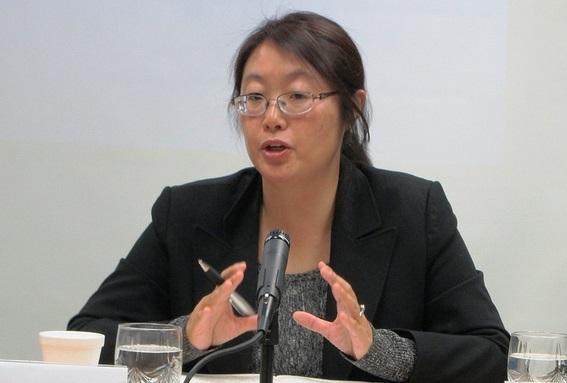The Strategist Six: Yuki Tatsumi
Posted By The Editors on June 23, 2016 @ 15:25

Welcome to The Strategist Six, a feature that provides a glimpse into the thinking of prominent academics, analysts, government officials, military officers, reporters and interesting individuals from around the world.
1. Japan will head to the polls in July. What will the Upper House election mean for the Abe government, and what issues will be driving voters?
The election result will determine whether Prime Minister Shinzo Abe will be able to run the government from the position of strength or weakness for the remainder of his term. Despite the anticipation of many, though, I think Prime Minster Abe will stay away from any further aggressive reform of the country’s national security policy, including constitutional amendment. His experience last year with the defence reform bill likely taught Prime Minister Abe that, particularly with weak economy, he won’t have political capital to spend on additional defence reform.
2. To what extent have opposition parties strengthened since the last elections, and are they in a position to seriously constrain Prime Minister Abe’s agenda?
The opposition parties have weakened considerably since the last election. In fact, the newly realigned and reorganised Democratic Party of Japan has a lower level of support among the Japanese public compared to its predecessor, for example. For the Abe government, the constraints on Prime Minster Abe’s agenda don’t exist in the opposition party. Rather, they reside within the ruling coalition partner, Komeito. Despite the small number of seats that Komeito members occupy in the Diet, Komeito can constrain PM Abe’s agenda greatly because many Liberal Democratic Party members owe their seats to Komeito’s ability to organise and mobilise their supporters. The power held by Komeito over voter mobilization is considerable, although very few discuss it.
3. To what extent do you think the US wants Japan to play a bigger role in the region?
I believe US wants Japan to be more active in engaging countries in maritime Southeast Asia to build the capacity of their navies and coast guards. It also wants Japan to make its defence investment decisions in a way that enhances its own capability to defend its homeland, so that the US can count on Japan to conduct such operations with minimal assistance from the US.
4. What is your judgement on the health of the US–Japan alliance, and what might the next evolution of that relationship entail?
Not bad, but not as good as many in the government make them out to be. The revised Guidelines for US–Japan Defense Cooperation has yet to be seriously tested for its implementation. Moreover, despite the stipulation in the revised Guidelines, it doesn’t appear that Japan would be willing to take on much more of an active role in “out-of-area” multinational operations, including UN peacekeeping operations. The next evolution in the alliance, whatever form it takes, must come with constitutional reform in Japan, so that Japan can move away from overly legalistic approach to its usage of the Japan Self-Defense Forces.
5. Japan recently failed in its bid to sell Australia submarines. Do you believe that decision will have negative consequences for Australia–Japan security relations over the coming years?
I don’t think it will have much negative effect over the long term. It would have taken a miracle for Japan to win the bid—Japan was too inexperienced in international competition for defence acquisitions, and I believe its bid simply wasn’t competitive. Bilateral security relations have been institutionalised, and security cooperation, particularly among US, Japan and Australia, has been steadily deepening. As long as Japan and Australia share the critical national interest of ensuring the US’s enduring engagement in the Asia–Pacific region, then Japan–Australia security relations will continue to make progress—probably incrementally, but steadily.
6. What do you think is the most significant threat to global security?
Stepping away from bilateral issues, I am concerned with the prevalence of intolerance, and the tendency to look at what’s happening in the world through a very simplistic “black-or-white” perspective. In the US, you see the most dramatic representation of this in Donald Trump. I’m very much concerned by today’s political reality in the US that Trump’s hostile, xenophobic message resonates with so many voters. We see similar intolerance in Europe and Asia as well. In Japan, you see this tendency toward rhetoric that is very hostile to China and South Korea. Japan’s relationships with these countries have been multi-faceted and complex; they require a disciplined and reasonable approach to be productive, but the current political climate in Japan doesn’t seem to leave much room for such nuance. But I suspect that these challenges are not unique to US and Japan.
Article printed from The Strategist: https://aspistrategist.ru
URL to article: /strategist-six-yuki-tatsumi/
Click here to print.